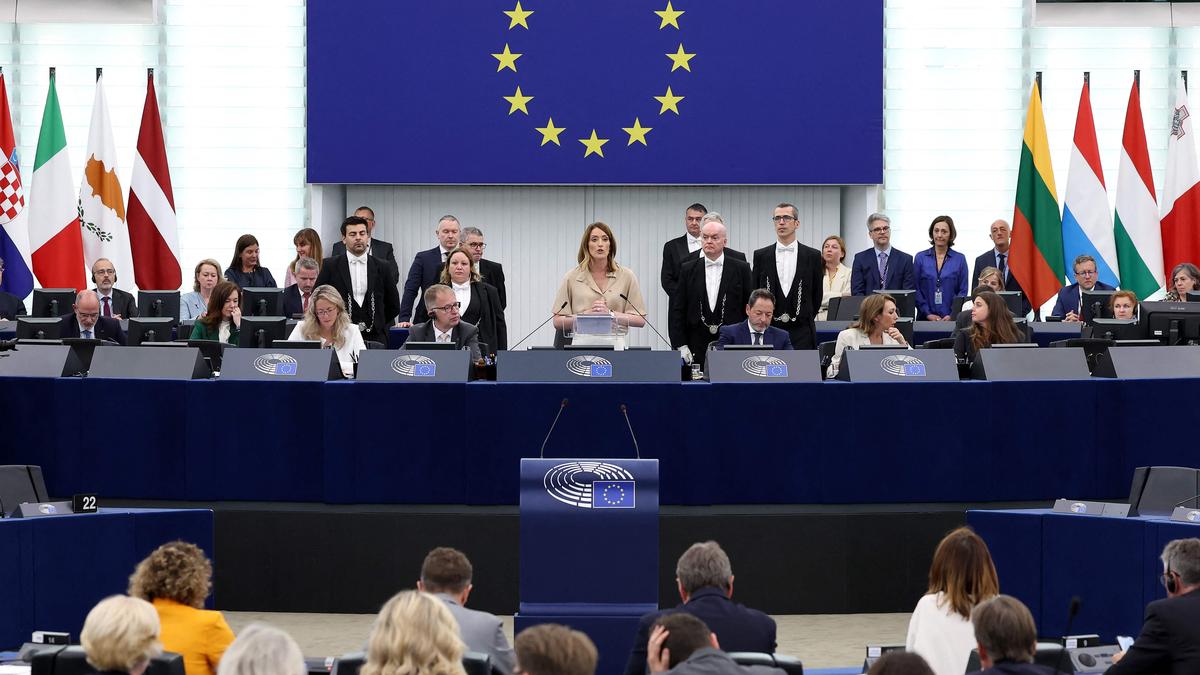
EU Parliament sees a Right tilt but a dominant centre to ensure continuity Premium
The Hindu
European Parliament elections 2024 results show a rise in right-wing parties, impacting EU policies and alliances.
The European Parliament elections concluded on June 9, 2024. Although the newly elected EU Parliament is still centre-heavy, and Ursula von der Leyen has been nominated for a second term as European Commission chief, the most significant gains were seen among the rightwing and far-right parties in Europe. The environment-friendly Greens faced an enormous pushback.
“This election has given us two messages. First, there remains a majority in the centre for a strong Europe, and that is crucial for stability. In other words, the centre is holding. But it is also true that extremes on the left and the right have gained support, which is why the result comes with great responsibility for the parties in the centre,” said Ms. von der Leyen.
The EU Parliament comprises 720 seats, divided among the 27-nation EU bloc. The distribution of seats is based on each country’s population and economic prowess, with Germany having the most seats. National political parties with similar ideologies are grouped in the EU Parliament as long as a group has 23 European Parliament members (MEPs) from seven EU nations.
In this election, the centre-right European People’s Party (EPP) won the most with 188 seats, followed by the centre-left Social Democrats (S&D) at 136 seats. In contrast, the Greens and Liberals (the Renew group) lost significantly. The most gains were seen by the right-wing European Conservatives and Reformists (ECR) and the far-right Identity and Democracy (ID) groupings. The political parties, which are not aligned with any bloc, comprising parties across ideologies (including new parties), saw a significant jump in their numbers. Even though the grand coalition of EPP, Renew, and S&D comfortably crossed the halfway mark and will most likely lead Parliament, the jump in the right and far-right factions could put roadblocks regarding many policy matters within the EU Parliament.
Germany (96) and France (81) generally send the most lawmakers to Brussels, but the wind blew rightwards in both countries.
In France, the National Rally (RN) led by Marine Le Pen won double the votes compared to French President Emmanuel Macron’s Renaissance party. This prompted Mr. Macron to dissolve the lower house of the French parliament and call for snap elections.
“I have heard your message, your concerns, and I will not leave them unanswered. I know I can count on you to vote massively on June 30 and July 7. France needs a clear majority to act with serenity and harmony,” said President Macron in a statement.





















 Run 3 Space | Play Space Running Game
Run 3 Space | Play Space Running Game Traffic Jam 3D | Online Racing Game
Traffic Jam 3D | Online Racing Game Duck Hunt | Play Old Classic Game
Duck Hunt | Play Old Classic Game











